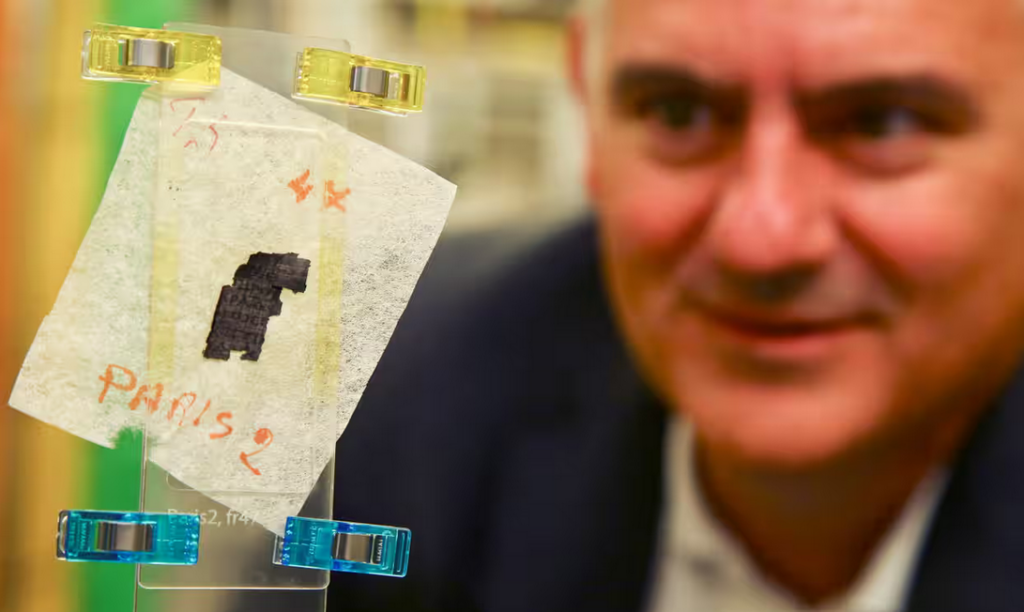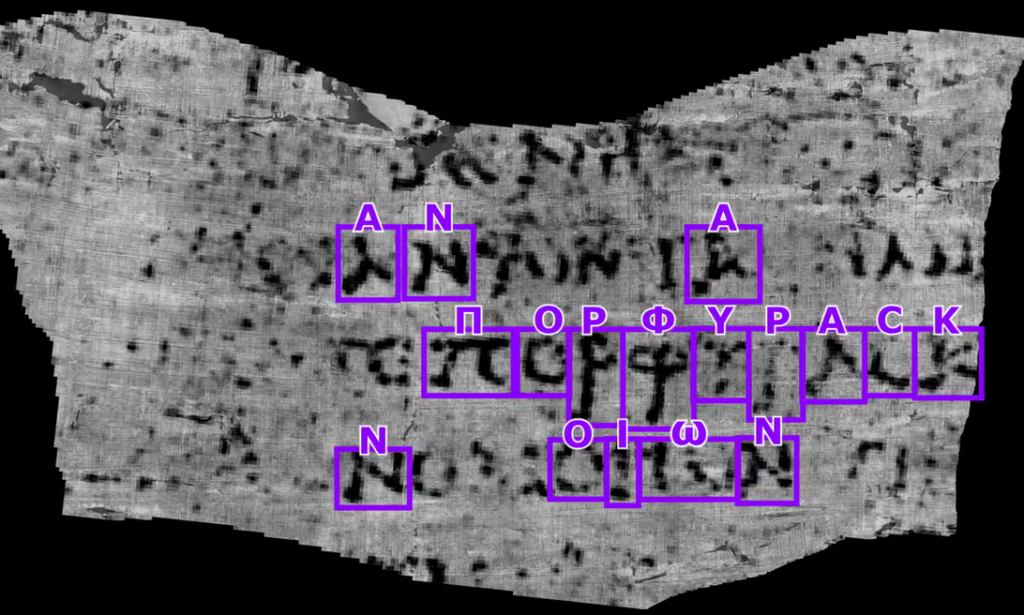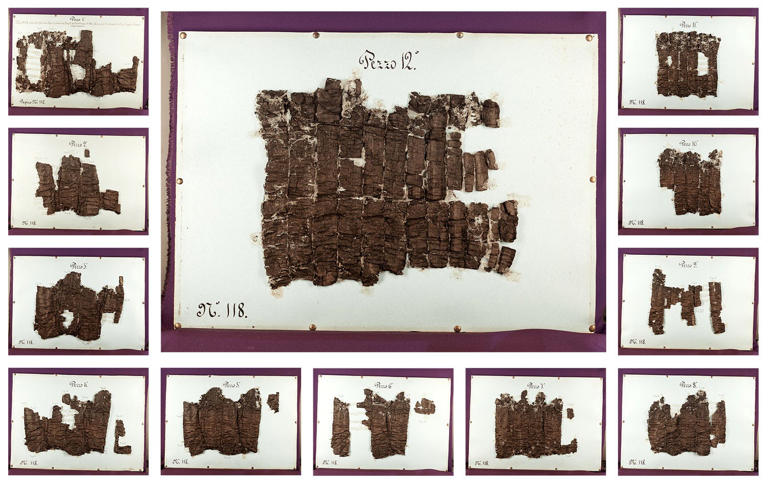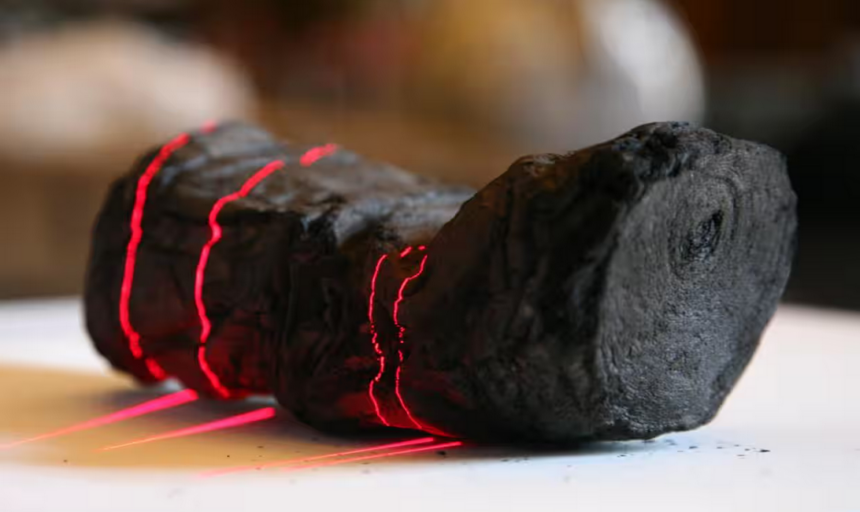When the eruption of Mount Vesuvius in AD 79 engulfed Herculaneum, it consumed hundreds of ancient scrolls in the library of a luxurious villa and buried the Roman town in ash and pumice. The disaster seemingly obliterated the scrolls, but nearly 2,000 years later, researchers have used artificial intelligence to extract the first word from one of these fragile, charred relics.

The discovery, unveiled by Prof Brent Seales from the University of Kentucky, marks a significant breakthrough. It was made possible through the Vesuvius challenge, initiated in March with the support of Silicon Valley investors, which seeks to accelerate the deciphering of these ancient scrolls and offers financial incentives to researchers who can extract readable words from the carbonized remains.
Stephen Parsons, a researcher on the digital restoration initiative, said, “This is the first recovered text from one of these rolled-up, intact scrolls.” Since then, additional letters from the ancient scroll have been uncovered. To initiate the Vesuvius challenge, Seales and his team shared thousands of 3D X-ray images of two rolled-up scrolls and three fragments of papyrus. They also released an artificial intelligence program trained to recognize letters based on the subtle changes the ancient ink made to the papyrus’s structure.

These unopened scrolls belong to the Institut de France in Paris and are part of a collection recovered from the villa’s library, believed to be owned by a prominent Roman statesman, possibly Lucius Calpurnius Piso Caesoninus, Julius Caesar’s father-in-law. Two computer science students, Luke Farritor in Nebraska and Youssef Nader in Berlin, participated in the Vesuvius challenge and independently discovered the same ancient Greek word in one of the scrolls: “πορφύραc,” meaning “purple.” Farritor, the first to find the word, is awarded $40,000, with Nader receiving $10,000.
The focus now shifts to interpreting the surrounding text. Dr Federica Nicolardi from the University of Naples Federico II reported that three lines of the scroll, containing up to 10 letters, are now legible, with more expected to be revealed. A recent section shows at least four columns of text. Seales commented on the significance of this discovery, stating, “This word is our first dive into an unopened ancient book, evocative of royalty, wealth, and even mockery.” The content of this particular scroll remains unknown, but Seales believes that it will soon be unveiled, offering a unique glimpse into ancient history and culture.

The Herculaneum scrolls are of immense interest as the sole intact library from antiquity. While most of the texts analyzed so far are in ancient Greek, some may be in Latin. These scrolls have already provided insights into various topics, including Philodemus’s work on Vices and the Opposite Virtues and Hellenistic dynastic history. However, much of the library’s non-philosophical content is yet to be discovered, leaving room for exciting possibilities such as plays by Sophocles, poems by Sappho, and lost books by Livy.
Seales expressed his enthusiasm, likening the experience of reading words from the Herculaneum scrolls to stepping onto the moon. He acknowledged the collaborative effort of a talented team and the exploration of new territory.








